In every episode of The Rockford Files, which aired from 1974 to 1980, right before the catchy theme song, the show famously opens up with a new person calling Jim Rockford on his answering machine.
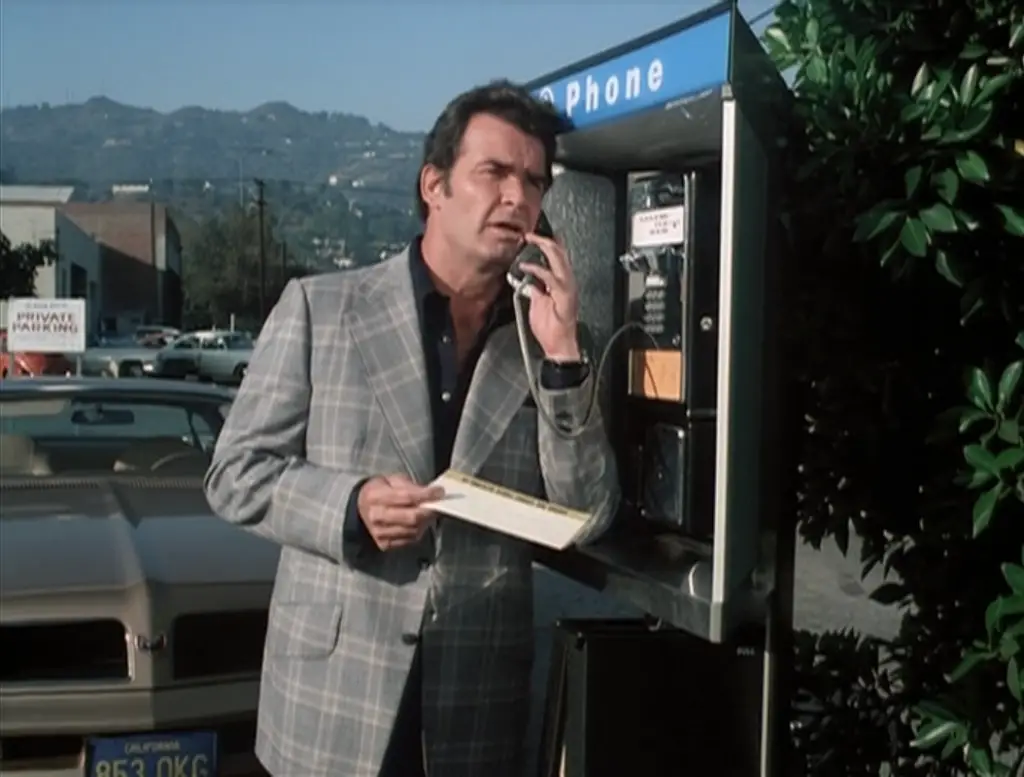
Watching the show over the years got me to wondering about the history of answering machines. In 1974, were answering machines a new piece of technology or had they been around for awhile?
Of course, nowadays, we often don’t even see answering machines in homes and stores. Well, I guess we do, but plenty of phone companies offer their own voice mail services, which is what I use. I'm probably a sap, though. I could probably save a little money every month by getting rid of mine and buying a stand-alone answering machine.
But I digress. So long have answering machines been around? I could have asked somebody who has been around longer than I have -- I was born in 1970 -- but I did some digging, mostly through online newspaper archives. Here's how the early days of the answering machine unfolded.
Today's "TV Lesson" Breakdown:
But first, a Little About The Rockford Files -- and Jim Rockford's Answering Machine
For those who aren't familiar with the series, Jim Rockford a world-weary detective. He had seen it all, and before the pilot episode, he spent five years in prison (falsely convicted and eventually pardoned). And while Rockford was a very successful detective, in terms of his ability to solve a case, he was always living paycheck to paycheck, barely, in a trailer.
The phone messages pretty much told you the story of Rockford’s life, in a few sentences.
Rockford would say on the answering machine, "This is Jim Rockford. At the tone, leave your name and message. I'll get back to you."
And then before every episode, a different message would play. Here are several of them:
- "It's Norma at the market. It bounced. You want me to tear it up, send it back, or put it with the others?"
- "It's Jack. The check is in the mail. Sorry it's two years late. Sorry I misfigured my checking account, and I'm overdrawn. Sorry I stopped payment on it. So when it comes, tear it up. Sorry."
- "It's Pete. Hope you enjoyed using the cabin last week. Only next time leave the trout in the refrigerator, huh? Not in the cupboard."
- "Jim, thanks for taking little Billy fishing, he had a great time. Turns out he really wasn't seasick. Um, have you ever had chicken pox?"
- "This is Globe Publications. Our records show you did not return your free volume of the Encyclopedia of Weather. So we'll be sending you the remaining twenty-nine volumes. You'll be billed accordingly."
- "This is Toby. I forgot what I was calling for. Your recording is so boring. Spike it with some humor, some personality. Something."
- "Jim, I have finally finished twelve long years of psychotherapy and I'm now able to tell you just what I think of you. Would you please call me?"
- "Jim, it's Eddie. You were right about 'Sweet Talk' in the seventh. He breezed in, paid $72.50. But I didn't get your bet down."
- Hey, Jimbo, Dennis. Really appreciate the help on the income tax. Wanna help on the audit now?"
While the messages never had anything to do with the plot that would unfold in each episode, you can easily imagine scriptwriters telling a story revolving around some of the phone messages that were left on Rockford's answering machine. Before we get into the history of the answering machine, here are a few more:
- "I staked out that guy only it didn't work out like you said. Please call me. Room 234. County Hospital."
- "Okay, pal, it's Harry. I just checked my car. You kept the battery charged, all right. You also put 3,500 miles on it."
- "Uncle Jim? It's Ralph. I got your letter, but I moved out here anyway. I really want those detective lessons."
The answering machine's origin story
Businesses, rather than resident homes, were the first to have answering machines.
That makes sense. If you’re a homeowner who misses a call, it's probably not all that big of a deal, in many cases. If you're a business owner who misses a call, you probably will lose money. Eventually a lot of money.
Which explains why, for instance, on April 17, 1950, The Cincinnati Enquirer ran this ad, the earliest ad that I've managed to find, though there's no reason to think that this was the very first answering machine ad:
SALESMEN -- To sell to all types of business and professions, a wireless automatic telephone answering machine. Electronic Secretary Sales, 1410 Race Str., GA 9146. Commission only.
(If you’re wondering about the GA 9146, that’s actually an old phone number. Two letters and four digits were commonplace long before the seven digit phone numbers we have now.)
The actual answering machine, called Electronic Sales, is considered the first successful answering machine for businesses.
Later, in another 1950 issue of the Enquirer, there was an ad for the TeleMagnet, which first came on the scene in 1949. It was not as successful as Electronic Sales. Still, for people who had never called somebody only to get a machine, it was presumably a marvel.
On August 15, in a Cincinnati Enquirer column called, “Shopping with Suzanne,” Suzanne, who didn’t get a last name with her byline, explained how the TeleMagnet worked:
"When the telephone rings, a turntable starts to revolve, and shoves out a lever. The lever lifts the telephone from its cradle. It needs to lift it only a trifle for the second of the voice to come through and be ‘heard’ by the recorder.
"The caller then hears the shuffle and click of the machinery, and before he has time to say more than ‘uh’ or ‘er,’ the record, previously made, begins to ‘play.’ The machine talks to the caller like this: "Mr. Abercrombie is out of town. If you will state your message, it will be recorded, and Mr. Ambercrombie will call you on his return.”
But while newspaper columnists named Suzanne and business owners were fans of the answering machine, the FCC (Federal Communications Commission) and AT&T were not as enamored.
The New York Times in 1951 reported how the government agency referred to answering machines as “unlawful,” and AT&T threated to cut off phone service to businesses that used answering machines.
AT&T felt that fewer calls might be made if people were nervous about being recorded on their phone call.
The answering machine in the 1960s
It was still a rarity, but by the 1960s, the answering machine started gaining popularity. On May 13, 1962, The New York Times began an article with:
"The day of the telephone answering service may be almost ended. The reason? A complete telephone answering machine that can do almost everything answering services can do except take out the laundry or run errands for subscribers.”
The article continued to discuss a telephone answering machine called Robosonic Secretary, made by Robosonics, Inc., in the Bronx.
As the decade continued, more answering machines came onto the market made by companies like Carterfone and Phone-Mate.
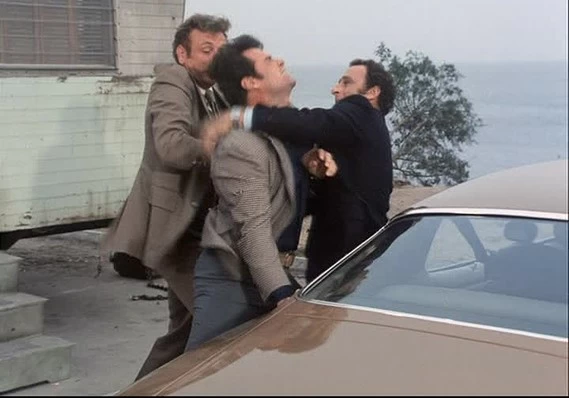
The answering machine in The Rockford Files era
Answering machines were popular, but they were still something of a novelty. In fact, when Lieutenant Columbo reaches an answering machine in the 1974 episode "An Exercise in Fatality," the way he reacts, you can tell he's simply amazed at these wondrous machines.
Phone companies, like AT&T, meanwhile, were not going to war with answering machines any more, so much as trying to co-opt them.
For instance, a year before that Columbo episode aired, on March 11, 1973, The New York Times ran a story that began with:
“Dr. Harold Padow is unhappy about the rising cost of his telephone answering service, and its discourteous handling of his patients. However, as a dentist with a practice in Brooklyn, Dr. Padow needs such a service. So he has begun to investigate automatic telephone answering machines."
The article pointed out that if Padow bought an answering machine and conformed to telephone rules, he would have to use a device supplied by the phone company, which would hook up to the answering machine. It was possible to use an answering machine without the phone company's device, however, and almost nobody did use these devices, the Times went onto note.
The phone company naturally charged a monthly fee for using the device and an installation fee, so using an answering machine – if you did it legally – was an expensive proposition.
Which Rockford quickly discovered. At the start of one of The Rockford Files episodes, he receives this message right before the theme song:
"This is the message phone company. I see you're using our unit. Now how about paying for it?"
Where you can watch The Rockford Files (at the time of this writing): You can find the entire series and watch it for free – and hear those famous answering machine messages – on Peacock TV.
Articles similar to this one: You may be interested in reading about the history of wall calendars (I use a Popeye episode to jump into that topic), or if you want something really obscure, I delve into the history of water towers by way of an episode of The Cimmaron Strip. And recently, a new blog post went up about the financial wisdom that you can pick up by watching The Rockford Files.

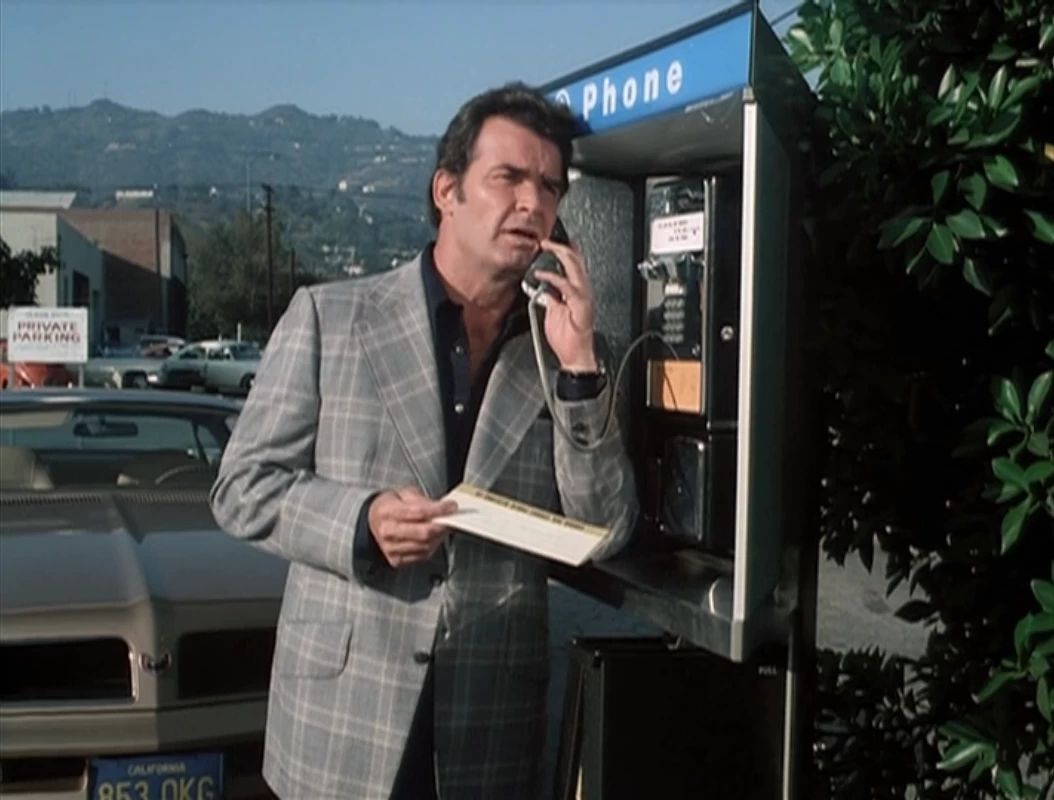
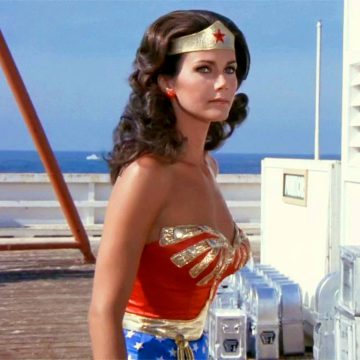
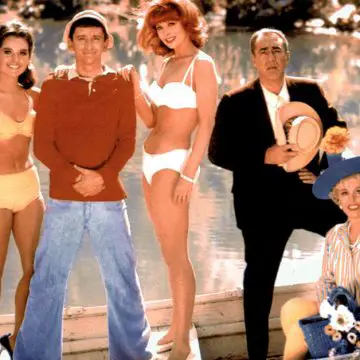
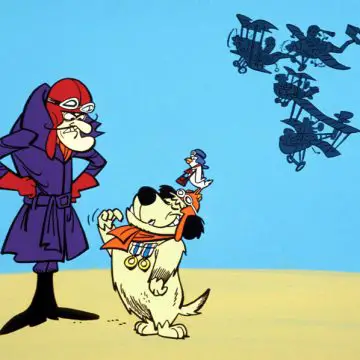

Eileen
Loved that show...loved this story and really enjoy your sense of humor!
Jennifer DiGiacomo
HA! I forgot how well that device worked in setting up the character. Device. Get it?